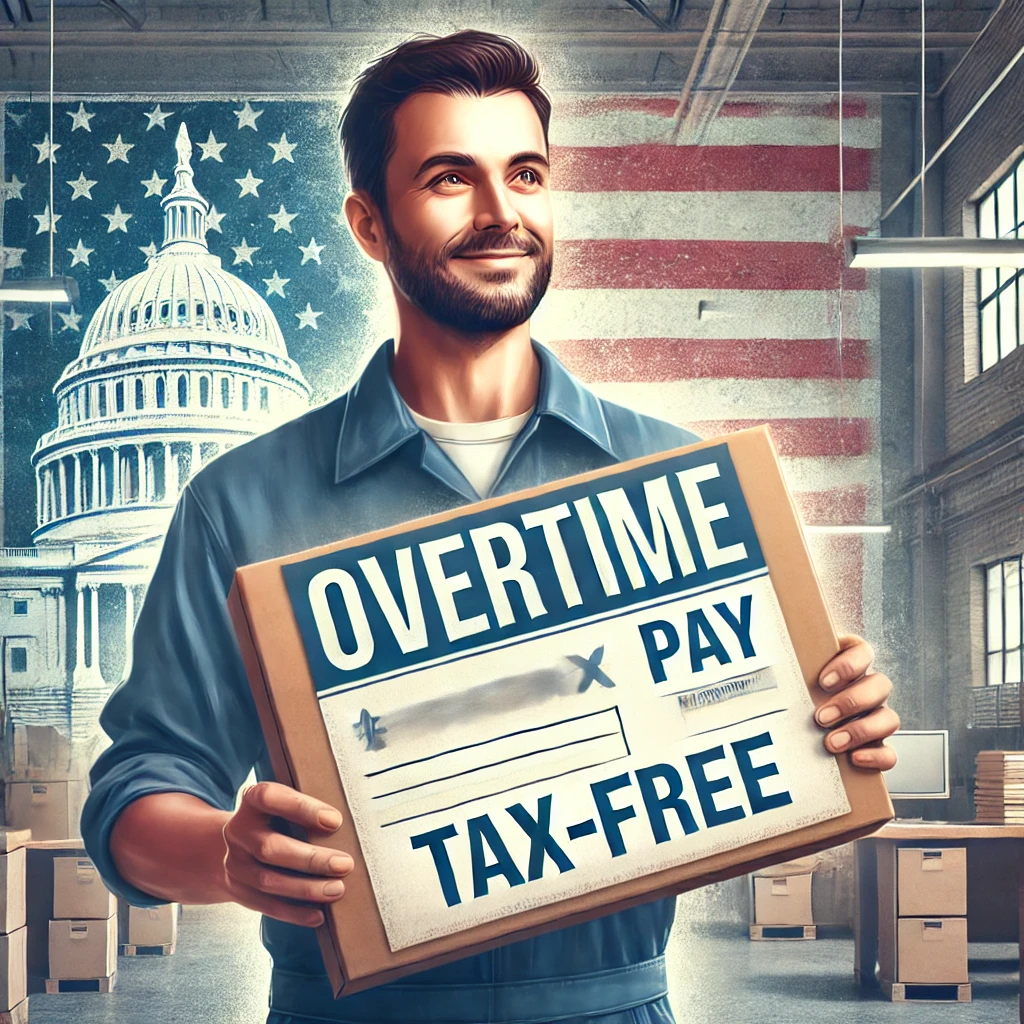Trump’s No-Tax-On-Overtime Proposal: What It Means for You :
Donald Trump has proposed a “No Tax on Overtime” policy, meaning that any money workers earn from overtime hours would be tax-free. This idea is designed to help employees keep more of their hard-earned money and encourage extra work. Here’s a breakdown of what this proposal could mean:
1. How Does Overtime Work Now?
Currently, most U.S. workers who work more than 40 hours a week get paid extra for those hours—usually 1.5 times their regular pay (also called “time and a half”). However, this additional income is still taxed like regular wages.
2. What Would Change?
Under Trump’s proposal, overtime earnings would not be taxed at all. So if you work extra hours, you take home the full amount without deductions for federal income tax.
3. Who Benefits?
- Workers with hourly jobs (like retail, manufacturing, healthcare, and food service) who often work overtime.
- Middle-class employees who rely on extra hours to boost their income.
- Employers, since workers might be more willing to work overtime, filling staffing gaps.
4. Possible Advantages
- More money in workers’ pockets – Employees get 100% of their overtime pay instead of a portion being taxed.
- Encourages hard work – More workers may be willing to take extra shifts.
- Supports middle-class families – Those who rely on overtime could see a real financial boost.
5. Potential Downsides
- Loss of government revenue – Taxes fund public services, so cutting taxes on overtime could reduce funding for programs like Social Security and Medicare.
- Possible changes in work policies – Employers might adjust schedules to avoid paying higher overtime wages or shift workers to part-time instead.
- Fairness concerns – Salaried workers who don’t qualify for overtime wouldn’t get the same tax benefit.
6. Will It Happen?
The proposal would need Congressional approval, meaning it’s not guaranteed to become law. If it moves forward, the details—such as who qualifies and how it’s funded—will be debated.
Final Thoughts
The No-Tax-On-Overtime proposal aims to give workers more take-home pay for extra hours. While it sounds beneficial for many, it also raises questions about government funding and employer reactions. Whether this policy becomes a reality depends on legislative support and economic impact studies.

